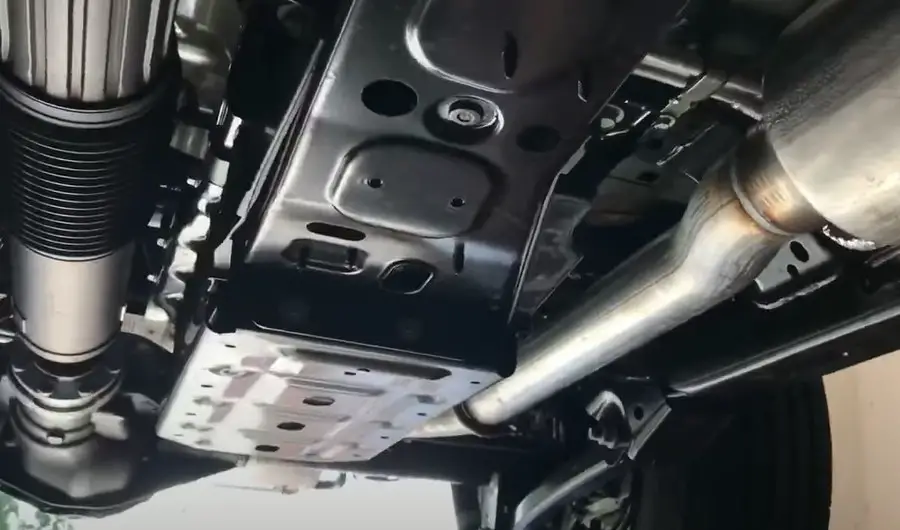2.0 Turbo engines are used in different Jeep models because of their reliability and power. Its outstanding architecture reduces side loading.
Despite the genius design and power balance, it has some problems. Even some customers have reported the issues to the manufacturers. So, what are the Jeep 2.0 Turbo problems?
The most common problems with the Jeep 2.0 Turbo are no manual transmission option, leakage on battery pack coolant, Turbo lag, and faulty wastegate. However, you might also face high maintenance costs, low horsepower, low torque, oil leakage, and poor fuel economy.
Whenever you notice the symptoms of a problem, take action immediately. Otherwise, it will be too late, and you might need to pay extra to fix the damages.
Table of Contents
Common Problems Of Jeep 2.0 Turbo And Their Solutions
When it comes to getting your off-road companion, Jeep 2.0 Turbo is a good option. It has the perfect balance of efficiency and power. On top of that, the open deck design improves performance.
However, unlike other manufacturers, the Jeep 2.0 Turbo has several problems. But fortunately, these problems are common and solvable.
Here are some details of those problems and their possible solutions:
1. Only Automatic Option
Most drivers do not like only the automatic option in their Jeep Turbo. However, Jeep 2.0 Turbo comes with an automatic option (no manual transmission system).
Therefore, you must compromise the manual transmission though most riders prefer it with their rigid vehicles. The obvious reason behind such demand is that manual transmission can produce more power than automatic transmission.
Unfortunately, there is no solution to this problem because you cannot switch from an automatic to a manual transmission.
The best solution is to manage with the automatic transmission as you need to bring it during your whole adventure.
2. Recalled Issue
First, the recalled issue does not indicate that Jeep 2.0 Turbo engines must be more adequate or worthy of use. The Turbo 2.0 engines have been recognized two times till now.
A 2.0-liter engine was the reason for the first recall. That is because the plastic connector showed a possible crack.
It mainly connects the fuel supply line with the high-pressure fuel pump. So, it is a crucial problem related to the power supply.
However, the possible cracks with the plastic connector were fixed and never recalled again.
3. Turbo Lag
Turbo lag issue is another common problem with the Jeep 2.0 Turbo. It means your Jeep will start to lag or become less responsive.
It would become a headache for you because the leisure and drive comfort will be compromised. Sometimes you need an immediate power boost and a quick response.
But with the Turbo lag, your Jeep will fail to provide the command you need. As a result, you might be at risk of driving it off-road.
However, you can overcome the issue by installing a throttle controller/booster. It will reduce the Turbo lag. The device will help to increase the response time of your vehicle by enhancing the rate of air entering the engine. This process will help to increase power production and eliminate the Turbo lag issue.
4. Oil Leakage
There are various reasons behind oil leakage in a Jeep 2.0 Turbo. However, the primary reason for oil leakage is the faulty oil cooler.
The oil cooler’s job is to maintain the engine’s oil temperature (keeping it at a moderate level). But when the cooler fails to do its job correctly, the oil’s temperature starts to fall, and oil will leak from the storage. However, that’s not the only reason for oil leakage.
A damaged or worn-out oil pan gasket can be responsible for oil leakage from the engine. The only solution to this problem is to repair the leaked areas.
If the situation is too bad, you can replace the part (gasket or oil cooler) to eliminate the possibility of leakage.
5. Battery Pack Leaking Coolant
Coolant leakage is another common 2.0 Turbo problem. When the coolant of the battery pack gets leaked, you will face some abnormalities in your engine.
Typically, a damaged battery or overheating is responsible for this situation. As the coolant leaks, the engine’s cooling system will not work correctly.

Therefore, it will lead to overheating issues. It can also cause several damages to the powerful engine of the Jeep Turbo.
The heat dissipation process also gets hampered due to leaked coolant. To solve or avoid this issue, you must check the coolant level of your Jeep 2.0 Turbo whenever you notice overheating. You can also ask for help from a repair shop.
6. Faulty Wastegate
Whenever you notice excess noise in the engine, it will refer to the faulty wastegate of your Turbocharged engine.
The problem is common. Therefore, you might get faulty code notifications such as P0243, which refers to Wastegate solenoid.
The reasons behind the excessive noise production are many. However, you can consider the faulty wastegate as one of the primary reasons.
You will eventually notice the signs such as fluctuation in Turbo boost pressure, no acceleration boost, or drastic fuel economy reduction.
It can also lead to engine backfire. So, the solution is whenever you see any excessive noise from the engine, check it. Don’t ignore the faulty code notification.
If you need an idea, get your engine checked by a professional mechanic.
7. Low Horsepower And Torque
Typically, a Jeep 2.0 Turbo engine can give you 295 feet of torque and 270HP, which is much less than other V6 engines in the market. Therefore, some Jeep owners might get disappointed due to low horsepower and torque.
On top of that, it has a towing capacity of 2500 pounds at max, which is low compared to a Grand Cherokee (7200 pounds).
You can only do something to increase the horsepower and torque capacity. That is because you need help changing the factory-made engine capacity.
8. High Maintenance
To be accurate, the Jeep 2.0 Turbo engine is quite powerful and suitable for off-road adventures. But such great features come with high costs, and they will take a big bite from your wallet due to their high maintenance cost.
It needs more attention and money to keep the engine tip-top than other Jeep Wranglers. The engine has a 48-volt battery system which has high maintenance costs.
On top of that, 91-octane fuel for the 2.0 engine is quite expensive compared to gasoline.
The Jeep 2.0 Turbo needs spark plug replacement every 30000 miles, which is more frequent than V6 engines that need 100000 miles to replace them.
9. Poor Fuel Economy
Not only does the Jeep 2.0 Turbo need a higher grade of octane, but also it has poor fuel economy. That’s because the 2.0 engine is quite powerful.
To run the engine, you will need more power. Therefore, the fuel consumption will increase to cover a similar distance compared to other V6 engines.
Final Words
Jeep 2.0 Turbo is getting quite popular because of its reliability on off-road performance. However, as a Jeep owner, it would be wise to know the potential issues while getting one of the 2.0 Turbocharged engines.
Hopefully, the Jeep 2.0 Turbo problems discussion has covered the required topic you want. Well, you can solve the issues discussed with the suggested methods.
Lastly, if you fail, you can get help from a professional or renowned repair shop. Drive safely!
